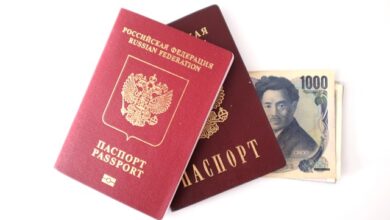How to Apply for a Student Visa in France: A Step-by-Step Guide

Studying in France is an exciting opportunity, offering access to world-class universities, diverse academic programs, and a rich cultural experience. However, before you can embark on your educational journey, you’ll need to secure a student visa if you’re a non-EU/EEA/Swiss citizen. The process may seem complex, but with careful planning and attention to detail, it can be straightforward. This guide will walk you through the steps to apply for a French student visa.
1. Determine If You Need a Student Visa
Before starting the application process, confirm whether you require a visa:
- EU/EEA/Swiss Citizens: No visa is required. You can enter France freely and stay for study purposes.
- Non-EU/EEA/Swiss Citizens: You will need a long-stay student visa (visa de long séjour étudiant) for stays exceeding 90 days.
If your course duration is less than 90 days, you may only need a short-stay Schengen visa , depending on your nationality.
2. Choose Your Program and Receive an Acceptance Letter
To apply for a student visa, you must first be accepted into a recognized educational institution in France. Follow these steps:
- Research Programs: Explore universities, grandes écoles (elite higher education institutions), or language schools that match your academic goals.
- Apply to Institutions: Submit your applications through platforms like Campus France (for many international students) or directly to the institution.
- Receive an Acceptance Letter: Once accepted, you’ll receive an official admission letter or certificate of enrollment, which is essential for your visa application.
For most non-EU students, the Campus France procedure is mandatory. This involves creating a profile on their website, submitting required documents, and attending an interview at a Campus France center in your home country.
3. Gather Required Documents
The visa application process requires several key documents. Ensure all paperwork is complete, accurate, and translated into French or English if necessary. Common requirements include:
Basic Documentation
- Completed Visa Application Form: Available on the website of the French consulate or embassy in your country.
- Valid Passport: Must be valid for at least three months beyond your intended stay.
- Passport-Sized Photos: Meet French visa photo specifications (usually two recent photos).
Proof of Enrollment
- Acceptance Letter: From your French educational institution.
- Campus France Certificate (if applicable): Proof that you’ve completed the Campus France procedure.
Financial Proof
- Bank Statements: Showing sufficient funds to cover living expenses (approximately €615 per month as of 2023).
- Scholarship Letter: If applicable, provide proof of financial aid or sponsorship.
- Parental Financial Guarantee: If your parents are funding your studies, include a signed letter and their bank statements.
Accommodation Proof
- Rental agreement or confirmation of university housing.
- Hotel reservation (if temporary accommodation is arranged).
Health Insurance
- Proof of health insurance coverage valid in France. EU citizens can use the European Health Insurance Card (EHIC), while non-EU students must purchase private insurance.
Additional Documents
- Academic Transcripts and Diplomas: Certified copies of your previous qualifications.
- Language Proficiency Test Results: For programs taught in French, you may need DELF/DALF scores; for English-taught programs, IELTS or TOEFL results may be required.
- Travel Itinerary: Round-trip flight reservations (not always mandatory but recommended).
4. Schedule an Appointment at the French Consulate
Once you’ve gathered all the necessary documents, schedule an appointment at the French consulate or embassy in your home country. Here’s how:
- Visit the consulate’s official website to book an appointment online.
- Pay the visa application fee (typically around €50–€99, depending on your nationality and program type).
- Attend the appointment with all required documents.
During the appointment, you may undergo a brief interview to discuss your study plans, financial situation, and intentions after completing your program.
5. Wait for Visa Processing
After submitting your application, processing times can vary but generally take 2–4 weeks . During this period:
- Avoid making irreversible travel plans until your visa is approved.
- Check the status of your application through the consulate’s tracking system, if available.
If approved, you’ll receive a long-stay visa (visa de long séjour) stamped in your passport. This visa allows you to enter France and serves as a provisional residence permit for up to three months.
6. Validate Your Visa Upon Arrival in France
Once you arrive in France, you must complete additional steps to finalize your residency status:
- OFII Medical Examination: Within three months of arrival, attend a medical check-up organized by the Office Français de l’Immigration et de l’Intégration (OFII) . You’ll receive instructions by mail.
- Apply for a Residence Permit (Titre de Séjour): After validating your visa, you may need to apply for a residence permit at your local prefecture. This card confirms your legal status as a student in France.
7. Tips for a Successful Application
To ensure a smooth visa application process, keep these tips in mind:
- Start Early: Begin preparing your documents at least 3–4 months before your planned departure.
- Double-Check Requirements: Each consulate may have slightly different requirements, so verify the specifics for your location.
- Be Honest and Accurate: Provide truthful information and avoid discrepancies in your application.
- Plan Finances Carefully: Demonstrate that you can support yourself financially without working excessively.
- Prepare for the Interview: Practice answering questions about your study plans, chosen program, and future career goals.
8. Post-Arrival Considerations
After arriving in France, there are a few additional steps to settle into student life:
- Open a Bank Account: Many banks offer accounts tailored to students.
- Enroll in Social Security: Register for the French healthcare system to access subsidized medical services.
- Explore Housing Options: If you haven’t secured permanent accommodation, look for shared apartments or student residences.
- Join Student Organizations: Participate in campus activities to meet new people and immerse yourself in French culture.



